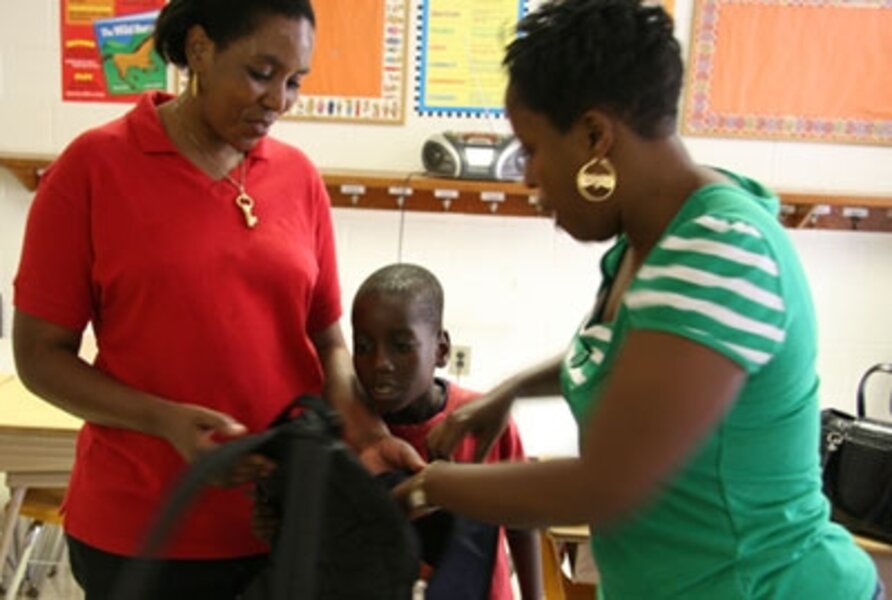Can Africans who spank raise "American kids"?
Loading...
Bill's parents, Dawami and Hassan, met last Tuesday with their younger son's first-grade teacher, Michael Sanders, and assistant teacher, Janine Ndayaremwa, to discuss Igey's troubles in class. Last year, his ICS teachers were worried that Igey might have cognitive delays; they decided he should repeat first grade, to give him a chance to catch up with his peers. This year, they say they're less worried about that - partly because he's making progress in class, and partly because this series has shown him behaving so differently at home than he does at school.
Still, first grade Part 2 isn't going exactly swimmingly. Igey tells his parents that he likes his teachers this year. But he drags his feet completing assignments, and frequently addresses Michael and Janine with "I don't know," "I'm not smart," or "I can't read." They're struggling to find the key to motivating him.
So this week, with Janine translating - she's from Burundi, and spent years (though not at the same time) in the same refugee camp as Dawami and Hassan did - she and Michael met with Igey's parents to ask their help.
Hassan agreed wholeheartedly with the teachers' characterization of his son's defiant behavior. Here in America, he and Dawami had the same problems with Igey at home, Hassan said. But what could they do?
"He says:t want to do it,' " Hassan says. Where he grew up, in Congo, or where his wife did, in Rwanda and Tanzania, corporal punishment would've taken care of that in a hurry. "But here, the system is you can't force a kid to do what he doesn't want to do. You can't slap him."
Many of the countries in south, east, and central Africa have banned corporal punishment in schools, according to anti-spanking groups the Center for Effective Discipline and the Global Initiative to End all Corporal Punishment of Children, which track laws on the subject worldwide. The United Nations Children's Fund is lobbying nations to outlaw it in homes as well, but notes that it "remain[s] prevalent in homes, where it is hidden from public view and often enjoys legal protection through civil and customary laws."
This is not, of course, to imply that all African parents hit their kids. But interviews for this project give the collective impression that many refugee families are struggling with the disconnect between expectations of parental discipline here and back home.
"If you could [only] slap him," Dawami joked, rolling her eyes. "In Africa if you slap him today, he'll [do what you tell him to] tomorrow."
Everybody laughed. But behind the joke is a worry she's expressed over and over: How do you raise "American kids" when you were raised to be an African parent?





